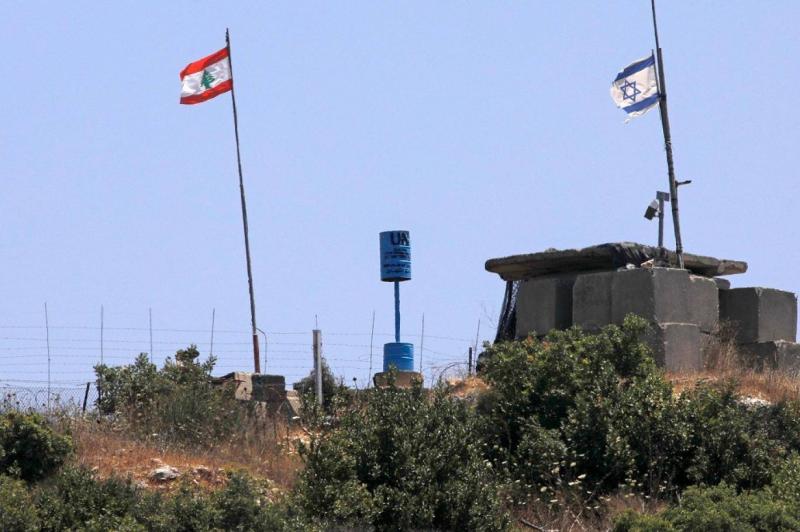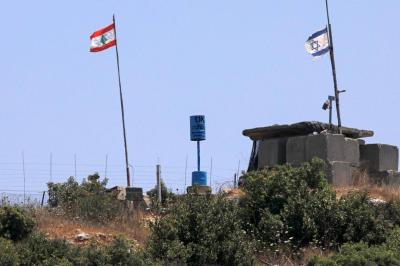With the onset of the ground assault, the war that erupted with the "Octopus of Al-Aqsa" operation has entered a new phase of turbulence that has left Lebanon breathless, fearing it may find itself in the heart of a hell opened onto Gaza, which is being "slaughtered" and is intended to be turned into a "large execution chamber" in the name of "self-defense," as noted in the Kuwaiti newspaper "Al-Rai."
Amidst the ebb and flow of Israeli military operations towards Gaza yesterday, between presenting it as the initiation of a comprehensive ground invasion and considering it a deeper phase of incursions preparing for an invasion that may not fit traditional notions and could involve a pattern of entry and withdrawal while maintaining an active role for aerial forces (a coordinated "air-ground" incursion), it is certain that the besieged sector faces a new fiery test, with the realities of its battlefield shaped through "support operations" across the "allies' arc," extending from Yemen, where the Houthis renewed, this time with an unprecedented official announcement, attempts to target Israel with ballistic missiles and drones, passing through Syria and Iraq with repeated attacks on American bases, culminating in Lebanon through intensified strikes by Hezbollah on Israeli positions and a force positioned on a hill (in the vicinity of the Al-Aassi site opposite Mais Al-Jabal).
While initial estimates indicated that before Israel increased the pace of its ground incursion yesterday, Hezbollah would escalate its operations, albeit within constraints to avoid provoking the "injured lion" (Israel) into declaring war on Lebanon, reflecting the anticipated public address by its Secretary-General Hassan Nasrallah the day after tomorrow, concerns have intensified in Beirut over the possibility of severing the "thin line" that the country walks over the erupting volcano in Gaza, especially given the inability to rely on intersecting interests regarding the non-expansion of the front (U.S.-Israeli-Iranian), which could be subject to change according to battlefield developments or Israel's attempts to drag everyone, particularly the United States, into a "feast of fire" on multiple fronts leading to a "multi-headed resolution," obscuring its inability to achieve a clear victory in Gaza.
As informed circles noted, the signal for the "ground assault" coincided with growing calls in Israel for the resignation of Benjamin Netanyahu—likening him to "the second Neville Chamberlain" (referring to the British Prime Minister who resigned in 1940 during World War II). Amidst horrifying scenes of the massacre in Jabalia yesterday and footage showing the Israeli army's brutality in torturing Palestinians in the West Bank, these circles warned against underestimating the extent of action Tel Aviv may pursue in its quest to erase the stigma of October 7. This was exemplified in recent hours by the Israeli ambassador to the United Nations, Gilad Erdan, who donned a yellow six-pointed star during a Security Council session (the day before yesterday), inscribed with "It will not happen again," indicating that Israel would not allow a repetition of the Holocaust, evoking the similar emblem imposed on Jews during the Nazi era in Germany, stating, "I will wear the yellow patch until we eliminate Hamas, and until the Security Council stops its silence... and condemns the massacre of October 7," comparing Ali Khamenei to Adolf Hitler and asserting that their army includes Hamas, Islamic Jihad, Hezbollah, and the Houthis.
Israel rejected a humanitarian ceasefire, not merely a cessation of fire, amidst Netanyahu's endeavors to obscure the dilemma he faces regarding captives, which has turned into a public pressure point against him, proposing an almost impossible equation that seeks to reconcile "recovering the captives and crushing Hamas." The first requires negotiations with intermediaries while the latter necessitates continuing military action against it, with Israeli experts suggesting that Netanyahu's dilemma lies in how to manage this issue without signaling through necessary concessions that might allow for a repeat of this situation while simultaneously annihilating Hamas to ensure that October 7 never happens again.
Against the backdrop that prolonging the war in Gaza, deepening the humanitarian catastrophe, and increasing the toll of Palestinian victims will amplify global public opinion against Israel, informed circles indicate that this is insufficient to reassure that the battle will remain confined to the "suffocated" enclave.
After the ground operation in Gaza commenced, and before Nasrallah's address, investigations intensified regarding the outcome of the ongoing "battle between the wars" on the southern Lebanese front, governed by rules of engagement that both parties (Israel and Hezbollah) respect, and which remain, for now, limited to painful and "almost balanced" strikes in terms of geography and casualties on both sides of the border.
In this context, leadership circles in the "Resistance Axis" report no decision has been made for a widespread explosion with Israel via what is known as the "northern front." The confrontations initiated by Hezbollah on the first day of the "Octopus of Al-Aqsa" have continued in a balanced rhythm that serves the purpose of occupying and diverting the Israeli army's forces.
According to these circles, the battlefield in Gaza will ultimately dictate the rules of the game; if the Israeli military apparatus succeeds in creating a "breach" in Gaza, segmenting it and isolating its northern region from the southern part, trapping Hamas, the situation on the southern front might take a different turn.
These circles believe that Hezbollah, which invokes the equation known as "the black bull was eaten when the white bull was eaten," is convinced it will be the next target after Hamas (even if only after a time) if the plan to eliminate it is successful—a scenario it will not accept and may compel it to turn the table, similar to its decision to engage in the Syrian war to prevent the fall of President Bashar Assad's regime, believing it would also be the next target.
In this context, Israeli National Security Advisor Tzachi Hanegbi stated yesterday that Israel is adopting a defensive posture on the Lebanese front to avoid exhausting its forces while focusing on waging war against Hamas in the Gaza Strip. He added, "One day after (the annihilation of) Hamas," Israel will apply "the lessons learned" to Hezbollah.
These circles—according to reports from them—do not rule out, if Israel succeeds in retaliating for the strategic blow it suffered on October 7, that it may escalate and exit the hesitation phase that may end with Netanyahu's departure from power, a leader who has been wary of engaging in wars, especially amid potential international changes such as Donald Trump returning to the U.S. presidency, which could place Iran and its allied forces in real danger.
**Washington and Paris**
This shifting and unstable landscape, contingent on the course of the war in Gaza, will be the focal point of meetings today between U.S. Assistant Secretary of State for Near Eastern Affairs Barbara Leaf and French Defense Minister Sébastien Lecornu in Beirut, where they will affirm the dangers of the war expanding into Lebanon. This was a warning previously issued in prominent positions by Druze leader Walid Jumblatt, who revealed that French Foreign Minister Catherine Colonna informed Presidents Nabih Berri and Najib Mikati during her visit to Beirut after the "Octopus of Al-Aqsa" that "no Lebanese area will emerge unscathed" if the country is drawn into war.
Significantly, Jumblatt's call to Hezbollah to ensure that "the military apparatus belongs solely to you in the south, controlling the decision of peace and war, alongside the presence of the Lebanese army," was not lost. However, when those factions engage, the decisions of some may not be in Hezbollah's hands, and there may be other regional or local interests that could embarrass Hezbollah and draw it into a comprehensive war outside its control.
In a related context, Mikati confirmed he is working to "keep Lebanon out of war," declaring, "So far, Hezbollah has been managing these issues rationally and wisely, and the rules of the game remain limited," but he stated he cannot "reassure the Lebanese," because "things are tied to their timings," emphasizing that the Lebanese people "do not want to enter any war and seek stability, especially after reaching levels of poverty and need."




